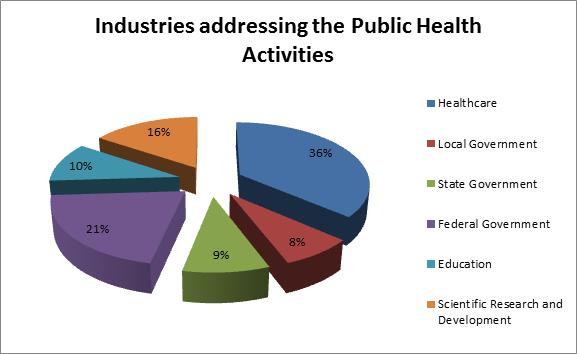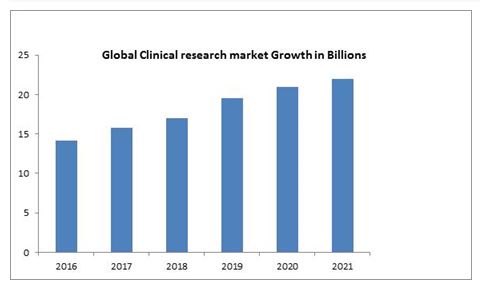About Conference
On behalf of the Advisory Committee we take great pleasure in welcoming academic scientists, researchers, research scholars, students and experts of application fields to 12th International Conference on Epidemiology and Public Health Webinar to foster the advancement in the field by contributing with your expertise to what promises to be a very comprehensive and exciting Webinar scheduled during September 23-24, 2020
12th International Conference on Epidemiology and Public Health (Epidemiology 2020), is going to be held during September 23-24, 2020 Online. The Epidemiology 2020 Webinar is attracting global participant’s intent on sharing, exchanging and exploring new avenues of Epidemiology Research & Development. The event will have Plenary speakers, established Keynote speakers, young researchers presentations and poster presentations. In addition, there will be poster presentations along with workshops and special sessions would be interested in audience.
The aim of the Epidemiology Conference is to promote quality research and real-world impact in an atmosphere of true international cooperation between scientists by bringing together the world class researchers, International Communities and Industrial heads to discuss the latest developments and innovations in the fields of Epidemiology & Public Health.
We sincerely hope that Epidemiology 2020 Webinar serves as an international platform for meeting researchers from around the world, widen professional contact and create new opportunities, including establishing new collaborations.
We are looking forward for your participation at the Live event- Epidemiology 2020
Why to attend?
With members from around the world focused on learning about Epidemiology and its advances; this is your best opportunity to reach the largest assemblage of participants from the Epidemiology community. This event will provide an opportunity to build and expand your network with various people and gives chance to make collaboration with other universities and research labs. Epidemiology 2020 conference covers broad subject matter expertise in healthcare epidemiology, long-term care, research methods, clinical microbiology, patient safety and quality, implementation science, and networking and communication.It also helps you to meet the experts in the relevant field of study, Conduct presentations, distribute information, meet with current and potential scientists, make a splash with new Epidemiology developments, and receive name recognition at this 2-day event.
Who should attend?
This international and interdisciplinary will act as a forum for Epidemiologist and Public Health professionals pathologist statistician clinicians business professionals foundation to learn quality medical care for the general public. It may help local health classes and conduct routine research in a managerial capacity. The conference will bring together healthcare professionals across all fields related to epidemiology career and public health practitioner globally.
-
Epidemiologists
-
Public health professionals & Associations
-
Veterinarians
-
Microbiologists
-
clinicians
-
communication specialists
-
Statisticians
-
Social scientists
-
Environmental health experts
-
Business professionals
-
Foundation leaders
-
Direct service providers
-
Policymakers
-
Research scholars and students
-
Academicians
-
Professors and faculty
Young Researchers Forum - Young Scientist Awards Epidemiology 2020
Young Research’s Awards at Epidemiology 2020 Webinar for the Nomination: Young Researcher Forum - Outstanding Masters/Ph.D./Post Doctorate thesis work Presentation, only 25 presentations acceptable at the Epidemiology 2020 young research forum
Young Scientist Benefits
-
Our conferences provide best Platform for your research through oral presentations.
-
Share the ideas with both eminent researchers and mentors.
-
Young Scientist Award reorganization certificate and memento to the winners
-
Young Scientists will get appropriate and timely information by this Forum.
-
Platform for collaboration among young researchers for better development
-
Award should motivate participants to strive to realize their full potential which could in turn be beneficial to the field as whole.
Deadline for Registrations:
-
Platform for collaboration among young researchers for better development
-
Till December 30, 2019 – $399
-
Till January 30, 2020 – $499
-
Till February 28, 2020 – $599
Opportunities for Conference Attendees:
For Researchers & Faculty:
-
Speaker Presentations
-
Poster Display
-
Symposium hosting
-
Workshop organizing
For Universities, Associations & Societies:
-
Association Partnering
-
Collaboration proposals
-
Academic Partnering
-
Group Participation
For Students & Research Scholars:
-
Poster Competition (Winner will get Best Poster Award)
-
Young Researcher Forum (YRF Award to the best presenter)
-
Student Attendee
-
Group Registrations
For Business Delegates:
-
Speaker Presentations
-
Audience participation
-
Symposium hosting
-
Book Launch event
-
Networking opportunities
For Companies:
-
Exhibitor and Vendor Booths
-
Sponsorships opportunities
-
Product launch
-
Workshop organizing
-
Scientific Partnering
-
Marketing and Networking with clients
Sessions/Tracks
Track 1: Epidemiology and Public Health
It is a cornerstone of public health, and shapes policy decisions and evidence-based practice by identifying risk factors for disease and targets for preventive healthcare. Epidemiologist’s help with study design, collection, and statistical analysis of data, amend interpretation and dissemination of results (including peer review and occasional systematic review). Epidemiology has helped develop methodology used in clinical research, public health studies, and, to a lesser extent, basic research in the biological sciences.
-
Epidemiology and Community Health
-
Epidemiology and Disability
-
Epidemiology and Mental Health
-
Epidemiology and Aging
-
Epidemiology Evidence based practices
Recommended: Epidemiology Webinar | Healthcare webinar | Public Health Online events | Epidemiology and Public Health Webcast |Epidemiology Online Conferences |Public Health Podcasts |Epidemiology 2020 Live events |COVID-19 live events
Track 2: Epidemiology and Infectious diseases
To prevent development of disease (secondary prevention) or disease-associated death and disability (tertiary prevention).
-
Epidemiology and Disease control
-
Epidemiology and Diseases
-
Epidemiology and HIV
-
Epidemiology and Zoonosis
-
Epidemiology and Etiology
-
Epidemiology and Infection
Recommended: Epidemiology Webinar | Healthcare webinar | Public Health Online events | Epidemiology and Public Health Webcast |Epidemiology Online Conferences |Public Health Podcasts |Epidemiology 2020 Live events |COVID-19 live events
Track 3: Epidemiology and Cancers
Epidemiologists continue to search for factors that cause cancer (like tobacco use, obesity, ultraviolet radiation), as well as those things that can help protect against cancer (such as physical activity and a healthy diet). The research provides evidence to guide public health recommendations and regulations. As molecular biologists learn more about how factors cause or prevent cancer, this information is used to study Molecular epidemiology, which is the study of interactions between genes and external factors. It represents the investigation of elements in responsible of the inception, metastasis and guess of different sorts of malignant growth. Epidemiological research discoveries on disease can encourage the detailing of appropriate helpful treatment techniques and preventive medicines for cancer. It is the exposure to specific chemical and physical agents is potentially one of the most important ways in which analytical epidemiologic methods can contribute to the knowledge of cancer etiology.
-
Epidemiology and Cancer Research
-
Epidemiology and Cancer Prevention
-
Epidemiology and Clinical Research
Recommended: Epidemiology Webinar | Healthcare webinar | Public Health Online events | Epidemiology and Public Health Webcast |Epidemiology Online Conferences |Public Health Podcasts |Epidemiology 2020 Live events |COVID-19 live events
Track 4: Epidemiology and Nursing care
Epidemiology encompasses the identification of infectious disease; the vectors of transmission, the sources of contamination, the patient population exposed or involved, containment practices, and preventative measures to stop further transmission of the disease. Epidemic keratoconjunctivitis is a common infectious disease in ophthalmology. It can be contracted from interpersonal exposure, contact with contaminated items, or iatrogenic transmission from the health-care settings and providers. The interview process, plus patient education, is the method of epidemiologic assessment that acts as the format to dealing with the epidemic.
Public health nursing focuses on person’s health that is affected by many factors, including genetic makeup, lifestyle and environment. They go into communities to try and help people to improve their health and prevent disease. Public health nurses also serve direct health care services, including preventive care, screening services and health education.
Health education is a primary deal with public health nurses. Drawing on their training as registered nurses, public health nurses provide people reliable, relevant information about how to protect their health. In low-income and rural people, public health nurses also provide critical health care services.They immunize schoolchildren, provide pre-natal and well-baby care and teach the aged people how to stay safe and healthy at home. They also must be able to recognize and respond to potential health crises.
-
Nuclear Education in Public Health and Nursing
-
Occupational Health Nursing
-
Nursing management and education
-
Occupational Health & Security
-
Communal Health
Recommended: Epidemiology Webinar | Healthcare webinar | Public Health Online events | Epidemiology and Public Health Webcast |Epidemiology Online Conferences |Public Health Podcasts |Epidemiology 2020 Live events |COVID-19 live events
Track 5: Epidemiology and Psychiatric
The study of disease transmission is worried about comprehension and controlling ailment plagues by examining experimentally the relationship between variety in presentation to infection making specialists outside the singular, variety in the opposition of people presented to the illness causing operators, and variety in obstruction assets in the conditions of uncovered people. These examinations are at first completed by analyzing regular varieties. Speculations dependent on these investigations are at that point, typically, tried temporarily in naturalistic semi exploratory circumstances with coordinating or measurable controls used thorough the states of an investigation. On the off chance that the theories confront these fundamental tests, they are assessed in intercessions gone for keeping the beginning or adjusting the course of the disarranges. Mental the study of disease transmission generally slacks behind different parts of the study of disease transmission in view of troubles experienced in conceptualizing and estimating mental scatters. Thus, much contemporary mental the study of disease transmission proceeds to be unmistakable, concentrating on the estimation of scatter prevalence and subtypes when different parts of the study of disease transmission are gaining ground in recording hazard factors and creating preventive intercessions. To the degree that mental disease transmission specialists examine hazard, they tend to center around expansive nonspecific hazard markers, for example, sex and social class, instead of on modifiable hazard factors, consequently restricting the conceivable outcomes for mediation. Be that as it may, this circumstance is changing as expressive issues are being settled, more expository questions are being tended to, and preventive intercessions are being actualized.
-
Different Concerns of Epidemiological Research in Psychiatric Disorders
-
Neurobiology, Genetics and Clinical Features of Psychiatric Disorders
-
Epidemiology of Mental Disorders During Childhood, Adulthood, And Late Adults
Recommended: Epidemiology Webinar | Healthcare webinar | Public Health Online events | Epidemiology and Public Health Webcast |Epidemiology Online Conferences |Public Health Podcasts |Epidemiology 2020 Live events |COVID-19 live events
Track 6: Epidemiology and Genomic Research
Concerns have been raised about the value of genomic research for prevention and public health, especially for complex diseases with risk factors that are amenable to environmental modification. Given that gene-environment interactions underlie almost all human diseases, the public health significance of Genomic research on common diseases with modifiable environmental risks is based not necessarily on finding new genetic ‘‘causes’’ but on improving existing approaches to identifying and modifying environmental risk factors to better prevent and treat disease. Such applied genomic research for environmentally caused diseases is important, because it may help stratify disease risks and differentiate interventions for achieving population health benefits; it could help identify new environmental risk factors for disease or help confirm suspected environmental risk factors; and it may aid our understanding of disease occurrence in terms of transmission, natural history, severity, etiologic heterogeneity, and targets for intervention at the population level. While genomics is still in its infancy, opportunities exist for developing, testing, and applying the tools of genomics to clinical and public health research, especially for conditions with known or suspected environmental causes. This research is likely to lead to population-wide health promotion and disease prevention efforts, not only to interventions targeted according to genetic susceptibility.
-
Genetic Epidemiology
-
Cardiovascular Epidemiology
-
Genetics and Multi System Diseases
-
Epidemiology and Human Genetics
-
Epidemiology and Epigenetics
-
Epidemiology and Pharmacogenomics
Recommended: Epidemiology Webinar | Healthcare webinar | Public Health Online events | Epidemiology and Public Health Webcast |Epidemiology Online Conferences |Public Health Podcasts |Epidemiology 2020 Live events |COVID-19 live events
Track 7: Epidemiology and Respiratory Diseases
Pulmonary disease prevalence increases with age and contributes to morbidity and mortality in older patients. Dyspnea in older patients is often ascribed to multiple etiologies such as medical comorbidities and deconditioning. Common pulmonary disorders are frequently overlooked as contributors to dyspnea in older patients. In addition to negative impacts on morbidity and mortality, quality of life is reduced in older patients with uncontrolled, undertreated pulmonary symptoms. The purpose of this review is to discuss the epidemiology of common pulmonary diseases, namely pneumonia, chronic obstructive pulmonary disease, asthma, lung cancer, and idiopathic pulmonary fibrosis in older patients. We will review common clinical presentations for these diseases and highlight differences between younger and older patients. We will also briefly discuss risk factors, treatment, and mortality associated with these diseases. Finally, we will address the relationship between comorbidities, pulmonary symptoms, and quality of life in older patients with pulmonary diseases.
-
Occupational exposures
-
Pulmonary tuberculosis (TB)
-
COPD, Asthma
-
Acute Respiratory Infections
-
Lung Cancer
Recommended: Epidemiology Webinar | Healthcare webinar | Public Health Online events | Epidemiology and Public Health Webcast |Epidemiology Online Conferences |Public Health Podcasts |Epidemiology 2020 Live events |COVID-19 live events
Track 8: Epidemiology and Social
The recent research shows that cumulative neighbourhood socioeconomic disadvantage was associated with increase in the odds of developing diabetes at middle age, with a dose-response association; those exposed to neighbourhood socioeconomic disadvantage for a shorter duration showed a less increased risk. The association remained after controlling for individual socioeconomic status. The results show that the effect of neighbourhood disadvantage becomes visible in childhood (poor diet), adolescence (low physical activity, increased prevalence of daily smoking) and early adulthood.
-
Epidemiology and Medical Sociology
-
Epidemiology and Medical Anthropology
-
Epidemiology and Ethics
Recommended: Epidemiology Webinar | Healthcare webinar | Public Health Online events | Epidemiology and Public Health Webcast |Epidemiology Online Conferences |Public Health Podcasts |Epidemiology 2020 Live events |COVID-19 live events
Track 9: Nutritional Epidemiology
Nutritional epidemiology is one of the younger disciplines in epidemiology. This may be partially due to the difficulties in measuring diet as an exposure. Diet and physical activity are arguably the most difficult exposures to assess in observational research and are plagued by considerable measurement error. Hence we are all exposed, and the variation may be more subtle than with other, more distinct exposures such as smoking or use of hormone replacement therapy.
-
Nutrition Deficiency Syndromes Epidemiology
-
Epidemiological Approach to Diet and Diseases
-
Malnutrition and Occurrence Of Diseases Epidemiology
-
Epidemiology and Nutrition health
-
Epidemiology and physical activity
Recommended: Epidemiology Webinar | Healthcare webinar | Public Health Online events | Epidemiology and Public Health Webcast |Epidemiology Online Conferences |Public Health Podcasts |Epidemiology 2020 Live events |COVID-19 live events
Track 10: Environmental Epidemiology
Environmental epidemiology is a branch of epidemiology that is related to determining how environmental risks affect human health. This area tries to understand how different external risk factors can prevent or prevent disease, illness, injury, developmental abnormalities or death. Epidemiologists study the factors that cause disease and the distribution of diseases within the population. Environmental epidemiology focuses on the ways environmental factors (physical, chemical and biological) affect the health of population.
-
Epidemiology and preventive care
-
Epidemiology and screening services
-
Epidemiology and health education
-
Epidemiology and Ecology
-
Epidemiology and Occupational Health
-
Epidemiology and Respiratory Diseases
-
Epidemiology and Risk Management
Recommended: Epidemiology Webinar | Healthcare webinar | Public Health Online events | Epidemiology and Public Health Webcast |Epidemiology Online Conferences |Public Health Podcasts |Epidemiology 2020 Live events |COVID-19 live events
Track 11: Epidemiology and Medicine
Alternative medicine involves the application of traditional methods of medication such as the use of herbs and other mind and body healing techniques that are mostly based on faith and belief. However, most of these techniques have no regulatory approval or clinical evidential backing. Many of the governments and regulatory bodies have put up efforts in finding clinical support for the incorporation of alternative treatments to help improve the market and treatment methods.
Recommended: Epidemiology Webinar | Healthcare webinar | Public Health Online events | Epidemiology and Public Health Webcast |Epidemiology Online Conferences |Public Health Podcasts |Epidemiology 2020 Live events |COVID-19 live events
Track 12: Epidemiology and Surveillance
Epidemiology is the study of health and disease in populations. Disease surveillance is the ongoing, systematic collection, analysis and interpretation of health data. Disease surveillance data is used to determine the need for public health action. During a public health emergency response, epidemiology is used to understand the needs of affected populations, the nature of the disease or exposure, and to inform control activities. This can include identifying potential outbreaks or clusters of disease (through public health investigation, active case finding and contact tracing), determining causation of disease, and assessing exposure and disease risk. Disease surveillance activities are carried out by Population and Public Health Division within the Ministry of Health and Public Health Units within Local Health Districts. Surveillance systems are particularly important in supporting a public health emergency response.
Recommended: Epidemiology Webinar | Healthcare webinar | Public Health Online events | Epidemiology and Public Health Webcast |Epidemiology Online Conferences |Public Health Podcasts |Epidemiology 2020 Live events |COVID-19 live events
Track 13: Epidemiology and Antibiotic resistance
Antibiotics and similar drugs, together called antimicrobial agents, have been used for the last 70 years to treat patients who have infectious diseases. These drugs are helping to cure illness and death from infectious diseases. However, these drugs have been implemented so widely and for so long to kill infectious organisms. Each year in the United States, at least 2 million people become arrested with bacteria that are resistant to antibiotics and at least 23,000 people die each year as a direct result of these infections.
-
Epidemiology and acquired resistance
-
Epidemiology and Disseminated resistance
-
Epidemiology and intrinsically resistant
Recommended: Epidemiology Webinar | Healthcare webinar | Public Health Online events | Epidemiology and Public Health Webcast |Epidemiology Online Conferences |Public Health Podcasts |Epidemiology 2020 Live events |COVID-19 live events
Track 14: Epidemiology and Chronic Diseases
The mission of the Chronic Disease Epidemiology Department (CDE) is to advance the health of the public by promoting a research-based approach to the prevention and management of chronic disease. Research in the chronic disease epidemiology cluster addresses the etiology, prevention, distribution, natural history, and treatment outcomes of chronic health disorders, including cancer (particularly breast, colon, lung, prostate, ovary and pancreas), cardiovascular disease, diabetes, gastrointestinal and pulmonary disease, and obesity
Epidemiology and prevalence chronic disease
Epidemiology and Incidence Chonic disease
Recommended: Epidemiology Webinar | Healthcare webinar | Public Health Online events | Epidemiology and Public Health Webcast |Epidemiology Online Conferences |Public Health Podcasts |Epidemiology 2020 Live events |COVID-19 live events
Track 15: Epidemiology and Oral Health
Studies conducted in the field of oral health epidemiology provide information on normal biological processes and on diseases of the oral cavity, identify populations at risk of oral disease or in need of specific care, and compare regional, environmental, social, and access similarities and differences in dental care between populations. Oral epidemiology also tests preventive interventions for controlling disease and evaluates the effectiveness and quality of interventions and oral health programs.
-
Epidemiology and preventive dentist
-
Epidemiology and Gentle Health
-
Epidemiology and Quality of Life
-
Epidemiology and Diabetes
-
Epidemiology and Elderly
-
Epidemiology and Tobacco
-
Epidemiology and Drug
-
Epidemiology and Obesity
-
Epidemiology and Aging
-
Epidemiology and Alcohol
-
Epidemiology and Smoking
-
Epidemiology and Hygiene
-
Epidemiology and learning disabilities
Recommended: Epidemiology Webinar | Healthcare webinar | Public Health Online events | Epidemiology and Public Health Webcast |Epidemiology Online Conferences |Public Health Podcasts |Epidemiology 2020 Live events |COVID-19 live events
Market Analysis
Epidemiological reconnaissance is conducted all over to examine the etiological components of disease and causes for spreading and its preventative measures. This Epidemiology conference gives the international platform for recent research on the uprising and re-rising diseases, communicable diseases, Non-communicable diseases. This conference has the extent to be the source of the medical specialty variables like origin, spread and up to date status of different diseases and disorders causing deaths in several nations.
The worldwide Epidemiology advertise has been esteemed at USD 13.45 Billion out of 2016 and is required to develop at a CAGR of 10.2% to reach to USD 23.88 Billion by 2022. The development of the general market for epidemiology can be ascribed to the developing interest for the customized drug, developing ventures, allows, and supports by the administration; ascend in look into exercises in the field of Epidemiology and public healthcare; expanding a number of new businesses, and expanding utilization of genomic sequencing in the diagnostics. In the coming years, North America is relied upon to represent the biggest offer of the worldwide market. Base year considered for the report is 2016 and the estimated time frame incorporates 2017– 2022. The worldwide Epidemiology showcase was assessed around USD 10.06 billion in the 2012 and is relied upon to reach roughly USD 27.24 billion before the finish of 2022 while enrolling itself at a compound yearly development rate (CAGR) of 10.48% over the estimated time frame. Genomics is a division of science that incorporates the investigation of qualities and their works and actualizes bioinformatics, recombinant DNA, and DNA sequencing techniques to examine grouping and force together with the capacity and structure of genomes. It includes practical genomics, relative genomics, Pharmacogenomics, basic genomics, and epigenetics. Genomics has rendered various applications in a few fields like biotechnology, human studies, genomic solution, and different sciences.
The worldwide genomics advertise has encountered an ascent in industry potential attributable to mechanical developments as new informatics gets to that amalgamate different types of information with genomic information in ailment inquire about which allowing specialists to comprehend the hereditary bases of an assortment of medication reaction and infections all the more successfully. Also, an ascent in half or full pay for this industry by the legislature of specific nations, developing the event of lethal sicknesses like diabetes, growth, and others give the ascent in their necessity in the worldwide advancement. Heightening gets to for novel genomics instruments and procedures, ascertain their advantage to the patient and focus on ventures to execute it and rising genome profiling innovations are foreseen to grow the genomics business at the fast rate. The finely-dispersed system of restorative research facilities is adding to quicker and simple acknowledgment of genomics methods and items.
The worldwide Pharmaco epidemiology and clinical research market has been evaluated to reach USD 14.2 billion in 2016-2017 and is proposed to reach around USD 22 billion by the year 2021, rising at a CAGR (compounded annual growth rate) of 7.5%, throughout the estimated period 2016 to 2021. The clinical investigation includes the Clinical examination as an element of clinical research that follows a controlled convention. Clinical research is basically performed to assess the safety and efficiency of the newly developed sedate. Clinical test data is obligatory for additional endorsement of the drug and to bring it into the market.


Importance & Scope:
An important epidemiologic premise is that individuals with the same disease entity have similar causes of the disease, and show similar natural history of the disease and similar responses to treatment or intervention. Under this important assumption, observations in a population study which contains a large number of individuals with a certain disease can be generalized to patients with the same disease in a different set of people in the same background population or in people in a different background population. In this context, traditional epidemiology has contributed to not only the successful identification of major etiologic factors even without molecular sub-classification but also the development of prevention strategies, such as smoking cessation programs.
Another aspect of major contributions of epidemiologic studies to broader biomedical and health sciences is provision of study subjects and materials. Epidemiologic research typically requires intensive efforts to carefully select subjects from a larger population, compile information on environment, lifestyle, behaviour, health and diseases, collect biospecimens, and build a large database infrastructure. Such epidemiologic resources can become an enormous asset for trans disciplinary research, and provide a large sample of disease patients, which is more representative of the general population than a typical hospital-based convenience sample.
Accordingly, along with advances in computing, bioinformatics, genomic medicine and biomedical sciences, modern epidemiology has broadened to integrate these disciplines. This advancement has been opening enormous opportunities, including the evolution of molecular pathological epidemiology.
Target Audience:
-
Epidemiologists
-
veterinarians
-
Microbiologists
-
clinicians
-
public health professionals
-
communication specialists
-
statisticians, social scientist
-
environmental health experts
-
Business professionals, foundation leaders, direct service providers,
-
Policymakers, researchers, academicians
-
Research Scholars and students
Related Companies/Industries/Institutes:
-
The Climate Corporation, US
-
IBM Watson Health, USA
-
UC Davis Health System, California
-
General Dynamics Information Technology, USA
-
Health Services Advisory Group, Virginia
-
Japan National Institute of Public Health
-
Albania Institute of Public Health
-
Jordan Ministry of Health
-
Angola National Institute of Health
-
Kenya Medical Research Institute
-
Argentina National Laboratories and Health Institutes Administration (ANLIS)
-
Libya National Centre for Disease Control
-
Armenia National CDC Zelveian National Institute of Health
-
Macedonia Institute of Public Health of Republic of Macedonia
-
Bangladesh Institute of Epidemiology, Disease Control & Research (IEDCR)
-
Bangladesh National Influenza Centre (NIC)
-
Malawi Ministry of Health
-
Belgium Scientific Institute of Public Health
-
Mexico National Institute of Public Health (INSP)
-
Bolivia National Institute of Health Laboratories (INLASA)
-
Moldova National Center of Public Health
-
Brazil FIOCRUZ (Oswaldo Cruz Foundation)
-
Mongolia Public Health Institute of Ministry of Health
-
Burundi National Institute of Public Health
-
Morocco National Institute of Hygiene
-
Pasteur Institute of Morocco (IPM)
-
Morocco Direction of Epidemiology and Control Diseases, Ministry of Health (MoH)
-
Cambodia National Institute of Health
-
Mozambique National Institute of Health
-
Cameroon Directorate for Combating Disease, Epidemics and Pandemics
-
Myanmar National Health Laboratory
-
CARICOM Center for Strategic Health Studies (CSHS)
-
CARICOM Ministry of Health (MoH)
-
Nepal School of Public Health and Community Medicine B.P. Koirala Institute of Health Sciences
-
Canada Public Health Agency of Canada (PHAC)
-
Canada Institute national de santé publique du Québec (INSPQ)
-
Netherlands National Institute for Public Health & the Environment (RIVM)
-
Public Health Institute of Chile
-
Nigeria National Primary Health Care Development Agency
-
Nigerian Institute of Medical Research (NIMR)
-
The Nigeria Centre for Disease Control
-
China Centre for Disease Control
-
Norwegian Institute of Public Health
Related Associations and Societies:
-
American College of Epidemiology (ACE)
-
American Public Health Association (APHA)
-
American Society for Public Administration (ASPA)
-
Association Medical Argentina (ADMISAL)
-
Association Mexicana de Epidemiology (AMEPID)
-
Association for Health and Environmental Development (AHED), Egypt
-
Association for Middle Eastern Public Policy and Administration (AMEPPA), USA
-
Association of Chinese Epidemiology
-
Association of University Programs in Health Administration, USA
-
Australasian Epidemiological Association (AEA)
-
Cambodian Society of Infectious and Tropical Diseases
-
Cameroon Directorate for Combating Disease, Epidemics and Pandemics
-
Cameroon Society of Epidemiology (CaSE)
-
Canadian Society for Epidemiology and Biostatistics (CSEB)
-
Danish Epidemiological Society (DES)
-
Egyptian Society of Epidemiology (ESE)
-
Egyptian Veterinary Association of Epidemiology
-
Epidemiological Association of Bangladesh (EPAB)
-
Epidemiological Society of Nigeria (EPiSON)
-
Finnish Epidemiological Society (FES)
-
French International Agency for Research on Cancer
-
German Society for Epidemiology (DGEpi)
-
Indian Association of Preventive and Social Medicine (IAPSM)
-
Indian Public Health Association (IPHA)
-
Indian Society for Medical Statistics (ISMS)
-
International Society for Environmental Epidemiology (ISEE)
Past Conference Report
Epidemiology 2019
Epidemiology 2019
The 11th International Conference on Epidemiology and Public Health was held in Copenhagen, Denmark which is organized by Conference Series llc LTD. This conference was an extraordinary event with huge success and with Participants from across the globe made this event a landmark in the field of Epidemiology and Public Health
Epidemiology 2019 was held during September 25-26, 2019 at Copenhagen, Denmark with the theme “Difficulties encountered and solutions adopted in the fields of Epidemiology and Public Health “drew kind response and participation from the scientists, Epidemiologists, Public Health Professionals, researchers, students and leaders in the fields of Epidemiology and Public Health, who made this event successful. It also provided invaluable networking opportunity, deploying the foundation for new research endeavors and development projects.
The meeting was carried out through varied sessions, in which the discussions were held on the following major scientific tracks:
-
Epidemiology and Public Health
-
Epidemiology and Infectious Diseases
-
Epidemiology and Psychiatric
-
Epidemiology and Genomic Research
-
Epidemiology and Nursing Care
-
Epidemiology and Cancers
-
Epidemiology and Respiratory Diseases
-
Epidemiology and Social
The conference proceedings were carried out through various scientific-sessions and lectures, of which the following topics were highlighted as Keynote presentations:
“Ecological evidence for lower risk of lymphoma with greater exposure to sunlight and higher altitude” delivered by Ray M Merrill, Brigham Young University, USA
“Psychomotor function of children with autistic spectrum disorder – is a progress possible in six months period?” delivered by Valdis Folkmanis, University of Latvia, Latvia
Conference Series llc LTD has taken the privilege of felicitating Epidemiology 2019 Organizing Committee, Editorial Board Members and Keynote Speakers who supported for the success of this event. The Keynote Speakers, Researchers and Delegates shared their innovative research and vast experience through their fabulous presentations at the podium of grand Epidemiology 2019. We are glad to inform that all accepted abstracts for the conference have been published in Conference Series llc LTD Journal of Epidemiology: Open access, With the success of Epidemiology 2019, we are proud to announce the 12th International Conference on Epidemiology and Public Health Webinar which will be held during September 23-24, 2020.
For More details visit: Epidemiology conferences
Let us meet again @ Epidemiology 2020
Past Reports Gallery












